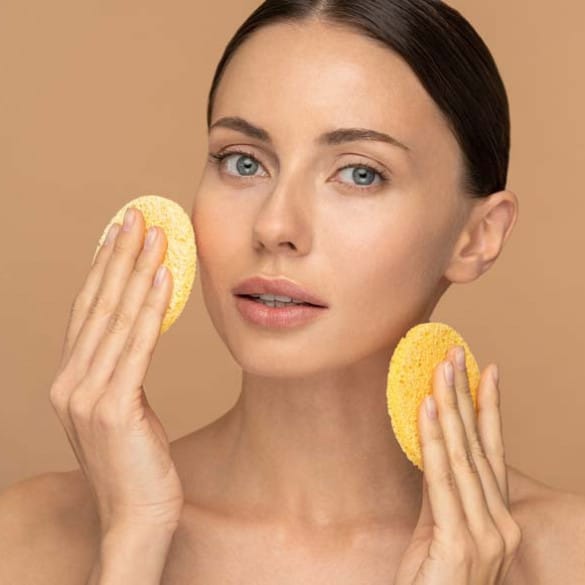August 17, 2023
Why Exfoliate?

Exfoliating is the process of removing dead skin cells from the surface of your skin using chemical, granular substance, or exfoliation tool means. Dead skin cells remaining on the skin surface can result in dry, flaky patches as well as clogged pores. By exfoliating, you are removing debris from your skin which can improve the appearance of your skin in several ways.
For many people, daily exfoliating is as routine as brushing your teeth or combing your hair. Although exfoliating can provide great benefits to your skin, it is also important to not go overboard and over exfoliate when starting this skin care method. In this blog, we will go into some of the best benefits you can get from daily exfoliation and explain the importance of incorporating exfoliating into your skincare routine.
According to the American Academy of Dermatology, regular exfoliation leaves your skin appearing brighter and improves the effectiveness of topical skin care products by enhancing your skin’s ability to absorb products you apply to it. Some of the main reasons to exfoliate include the ability to boost skin’s radiance by removing excess dead skin cells, unclogging pores by whisking away dirt and debris trapped within them, preventing acne, the ability to reduce discoloration by evening out skins texture, and the ability to allow for better makeup application.
It is important to not go overboard when you first start incorporating exfoliation into your routine. Exfoliating too often can do more harm than good and everyone’s skin has different needs. There is no one size fits all schedule for exfoliating and you should factor in a few things before starting this skincare routine. Over exfoliation can lead to rough, patchy, dehydrated skin that loses its ability to retain moisture. When this happens, the effects of your beauty and skincare routine can significantly diminish. Some warning signs of over exfoliation include skin irritation and discoloration, increased acne, flaky skin, overproduction of oil, and tight and dry skin.
There are two methods of at-home exfoliation, mechanical and chemical. The method of exfoliation you choose to use should be one that works well with your skin type. Mechanical exfoliation involves the use of tools such as sponges or brushes to remove dead skin cells physically. Chemical exfoliation involves the use of chemicals to dissolve dead skin cells gently. Dermatologists recommend factoring in the skin products you already use, selecting exfoliation methods that match your skin type, following up with moisturizer, and finding a suitable schedule that works well with your skin type.
